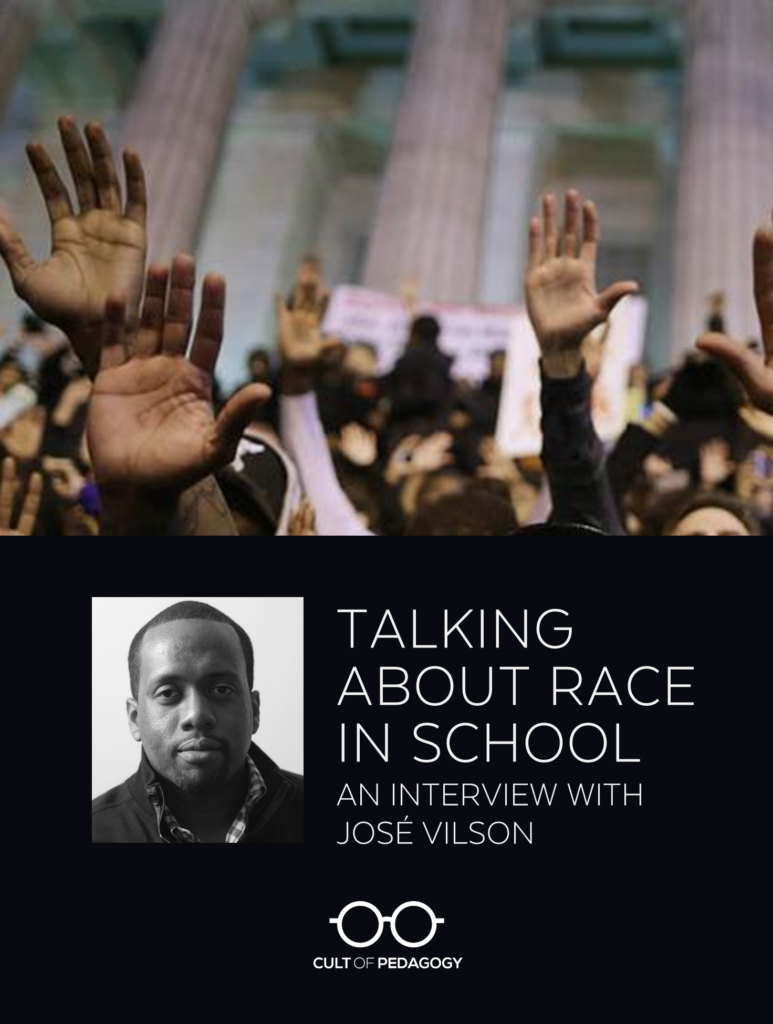
Listen to my interview with José Vilson (transcript):
This page contains Bookshop.org links. When you make a purchase through these links, Cult of Pedagogy gets a small percentage of the sale at no extra cost to you. What’s the difference between Amazon and Bookshop.org?
Earlier this year, I reviewed writer José Vilson’s book, This Is Not a Test and have since followed his blog, The José Vilson. It was through Vilson’s tweets that I first learned about the August 2014 shooting death of Michael Brown in Ferguson, Missouri, and Vilson’s voice has been one I trust as I’ve followed the story since then.
So last week, when a St. Louis County grand jury decided not to indict police officer Darren Wilson for Brown’s death, and a wave of protests erupted across the country, I thought about everybody gathering with their families for Thanksgiving, talking about the riots and the looting and the verdict, then returning to classrooms and faculty lounges this week, where their own families’ conversations would run headlong into the those of everyone else’s. And what, if anything, teachers would do to facilitate or moderate this convergence.
I wondered whether José had any advice for teachers this week. So I sent him an e-mail a few days ago to see if he’d be willing to talk about it with me on the podcast. And he said yes.
I learned a lot from my conversation with José; most importantly, I learned how much I don’t really know about the Mike Brown case. More than once, he mentioned some aspect of the case that I had little knowledge of. Of course, I was too nervous and embarrassed to admit it, but when José talked about the prosecutor’s connections to the police, the fact that Darren Wilson did not know Brown was a suspect in the convenience store robbery, and the fact that witnesses give conflicting reports on Brown’s exact behavior at the moment of the shooting, I was only vaguely familiar with all of these aspects. I have gathered bits and pieces of the story and placed them into a kind of Trayvon-Martin-Rodney-King framework, the basic plotline that a privileged person constructs when hearing these stories, filling in the gaps with assumptions, telling ourselves we have the basic gist and that’s enough. When your life isn’t directly impacted by these stories, it’s far too easy to do that.
So what I got from talking to José is a strong sense of wanting to learn, to read past the first paragraph of stories about Ferguson, and to quit thinking I have enough information. If you have walked comfortably in vague ignorance like I have, my hope is that this interview will give you that same desire to know better. ♦
Resources Mentioned in this Podcast


Why Are All the Black Kids Sitting Together in the Cafeteria? And Other Conversations About Raceby Beverly Daniel Tatum
Racism without Racists: Color-Blind Racism and the Persistence of Racial Inequality in America
by Eduardo Bonilla Silva
Further Reading
The Importance of Wait Time: Teaching Ferguson in the Era of Instant News
Cristina Duncan Evans, Education Week Teacher, December 2014
“One of my biggest worries in putting together lessons on Ferguson was figuring out how to responsibly show different perspectives on police brutality. Officer Darren Wilson has his supporters, and some of those supporters believe that race played no role in the shooting. My personal opinion is that their viewpoint strengthens our racially biased justice system and undermines minorities’ safety and due process rights. When I introduce this (and other) viewpoints in my class, I have to be ready for my students to pick it up, play with it, mold it, shape it, and see if it fits them.”
12 Things White People Can Do Now Because Ferguson
Janee Woods, Quartz, August 2014
“A lot of white people aren’t speaking out publicly against the killing of Michael Brown because they don’t see a space for themselves to engage meaningfully in the conversation so that they can move to action against racism. It’s not so much that they have nothing to say but rather they don’t see an opportunity being opened up for them to say something or to do something that matters. Or they might not be sure what to say or how to do it.”
How to Teach Kids About What’s Happening in Ferguson
Marcia Chatelain, The Atlantic, August 2014
“In this kind of situation, people all say, what can I do? I have few talents in a crisis, but I do know I’m pretty good at teaching, and I knew Ferguson would be a challenge for teachers: When schools opened across the country, how were they going to talk about what happened? My idea was simple, but has resonated across the country: Reach out to the educators who use Twitter. Ask them to commit to talking about Ferguson on the first day of classes. Suggest a book, an article, a film, a song, a piece of artwork, or an assignment that speaks to some aspect of Ferguson.”
How to Teach Beyond Ferguson
José Vilson, Edutopia, September 2014
“We don’t often get the chance to reflect about our misgivings or perceptions of each other. Especially in diverse communities (and I do mean diverse and not just communities of color), we often dodge racial conversations because we pretend that avoiding the subject means peace. Instead, confronting our own prejudices head-on would make us better people and leaders.”
And on Twitter, follow the hashtag #FergusonSyllabus.
Join our mailing list and get weekly tips, tools, and inspiration—in quick, bite-sized packages—all geared toward making your teaching more effective and fun. You’ll get access to our members-only library of free downloads, including 20 Ways to Cut Your Grading Time in Half the e-booklet that has helped thousands of teachers save time on grading.

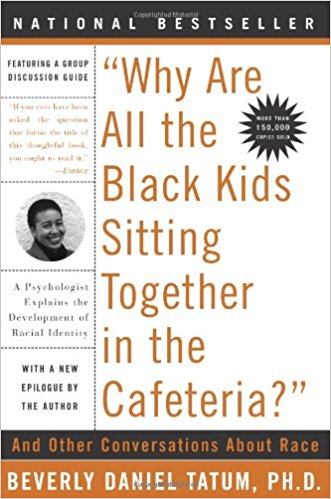
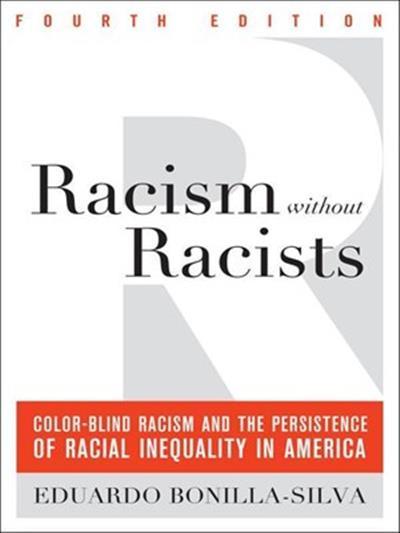
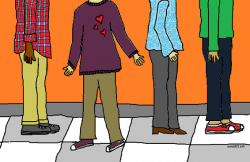
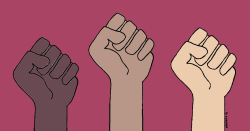
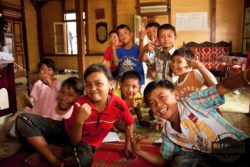
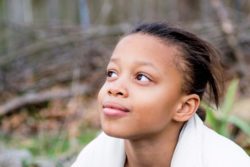
Hi there, I am going to work through this post more slowly and learn from it but I also wanted to ask what activities you might have for teaching bias. I am about to start a unit on the impact of colonisation and know that racism is going to part of the conversation. I would like to start the unit with a few key activities and conversations that frame our thinking. Any suggestions or links to other posts would be appreciated. Thanks
I love the parallel being talked about here. I also love the aspect of relationships in this podcast. I think relationships inside and out of the classroom are so important. Thank you for this. I look forward to hearing more.
Thanks for sharing, Harlie!